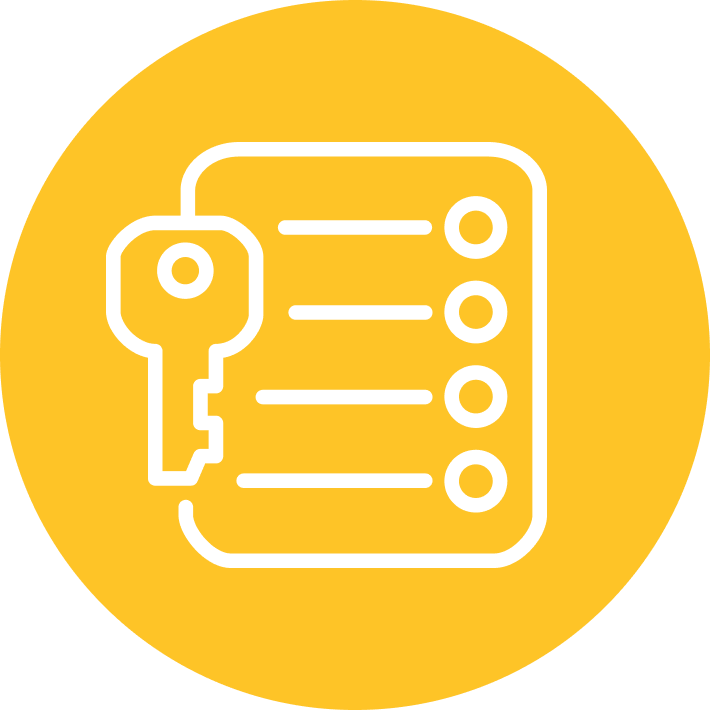Are you looking for the best possible homeschool program for your child?
There are many layers to consider when it comes to finding a program.
Every program is different.
And we want to let you in on a little secret...
One program that works for one child may not work for another.
That doesn't mean the program is bad. It just means the program isn't right for your child.
The key is figuring out your child, deciding on what educational experience you want them to have, and putting in the work to find a program that's in alignment with your wants and needs.
That doesn't sound so hard, now does it?
In this article, we help point you in the right direction. We tell you what to look for in a program and how to decide what program style is best for your child. We also recommend a few programs that we believe offer a quality educational experience.
Key Takeaways

- Homeschool programs come in various forms (online, book-based, co-op, and religious).
- Some programs offer a full curriculum or just a single subject.
- Your child may need a different type of program depending on their age.
Getting to Know Your Child
If your child is coming out of traditional school, this is a great time to figure out what worked and what didn't for them. Before you choose a program, sit them down and question them about their experience in public schools.
Learning Mediums
A homeschool curriculum comes in all shapes and sizes; some are online, while others are straight from a textbook. Because there are so many options out there, it's important to narrow down the best options that highlight your child's strengths and abilities.
Finding these qualities is as simple as asking about their favorite subjects.
From there, ask them about the classes. What did they enjoy about the class? How was the teacher? Was it online or from a book?

Really feel into what your child is saying and read between the lines. Some children may be enticed by the idea of working solely online but, in reality, may have struggled to complete work online in public schools. Ensure you're clearly asking questions that can give you the answers you seek.
How They Are Taught
Another important aspect to consider is who's going to teach your child. Depending on your state, there are certain laws that say who is legally allowed to educate your child. Some states require parents to have a college degree, while others only require parents to have a high school degree. There are even states that don't have any requirements in regard to educational certifications for homeschool teachers.

Are you going to teach your child? It's important to be aware of how important a homeschool teacher's role is. Some homeschool programs are taught similarly to a traditional school where the parent initiates the majority of the teachings.
The child listens to the parent, takes notes, and may also do their own independent learning throughout the day. Does this sound like something you're comfortable with? Does this sound like something your current schedule allows?
If you work full time, this may not be viable for you. But don't worry; there are programs out there that are exactly what you and your child need.
There are a lot of online homeschool programs that may be what your child needs to succeed in their homeschooling journey. These programs are taught in a few different ways.
First, your child may be guided through fun and engaging video lessons. The lessons are then followed by activities or quizzes to solidify the learning material. The great thing about these programs is that your child can return to lesson plans they struggled with and circle back on the material. This gives your child a greater sense of familiarity with the material and ease, knowing that they are able to stay on a subject for as long as they need.
Other programs may have a mix of online video lessons and live virtual classes. These virtual classes are taught by accredited teachers who are able to interact with your child. Your child can communicate questions or concerns with these teachers as they progress through their day, keeping them on track and having someone there to answer their questions whenever they need it. If your child appreciates having a live person teach them, but you're not able to do it yourself, this is a great alternative.
Reach Out to Your Child's Teachers
Another great way to get to know your child's learning styles and abilities is to reach out to their past teachers. You can set up a meeting with a few of them and ask them questions about your child.
These teachers know your child's learning abilities better than you probably do, and any information they give you should be taken into consideration. Of course, homeschooling allows you to make decisions for yourself and take matters into your own hands, so even if a teacher says your child didn't learn well from a book, it doesn't mean you can't include this in their curriculum.
Another option is to find a few programs, make a list of what they all include and what the learning experience would be like, and take this information to your child's past teachers to see if they think it's within their abilities.

This saves you time trying to pick your child's brain, who may or may not be aware of some of the more subtle learning traits that their teachers are aware of. Don't be discouraged if you reach out to a teacher and they aren't able to meet with you. Keep trying. Try a teacher from a different class or from the year before. Someone out there will be willing to meet with you and help you understand your child's educational needs.
Program Types
As we've stated before, many homeschool program types are out there. Whether you're looking for an online public school, a boxed program, or a hybrid experience, there's a program out there that's perfect for you and your child.
Online Programs
We've talked a little bit about online programs before. But we wanted to give you an idea of what a typical day would look like for your child as they attend an online school.
First, your child can start learning pretty much whenever they please. Now, we're sure as a parent you still want to maintain a level of routine for your child to keep them accountable, but if your child doesn't work well at 7 or 8 am, maybe let them start working at 9 or 10 am. That's the beauty of homeschooling, especially online; your child can learn almost anytime, anywhere.

They're presented with the current learning schedule as soon as they log in. This may include video lessons, text for them to read, or offline activities that they do independently. If your child attends a virtual class, those usually follow a set schedule.
Online homeschooling programs are great for record-keeping as they automatically track your child's attendance, progress, and performance. Say your child is struggling in a particular subject; some programs will automatically circle back to the material they need to work on, and if not, you're still able to see how your child is doing and can manually have them circle back to difficult material.
Your child's education is one of the most important aspects of their lives, and online homeschooling is one of the best ways to ensure they receive a proper education.
Of course, if your child don'ts learn well online, every online program isn't going to be for them. But after 2020 and the pandemic, many children are used to virtual classes or working on a computer, so an online program may be the route to take.
One of the best online homeschool programs is K12. This program puts homeschooled families at ease by providing full public school curriculums. Some states have curriculum requirements, so finding a program that provides a full spectrum of material is important. Make sure to understand the requirements in your state since homeschooling programs in Missouri or any other state will look different than the program requirements in Colorado.
K12 ensures your child learns essential subjects at a pace that's comfortable for them. Your child can also work directly with teachers and tutors to help them along the way. Having these options takes the pressure off you as a parent and allows you to know that your child is in great hands.
Even if you already have a homeschool program but are looking for single subjects to fulfill your child's special interests, K12 also offers these individual courses.
Textbook Learning
An online program isn't for everyone. Even if your child wants to learn online, you may not be comfortable allowing that much computer time daily.
If you are looking for a more traditional approach to learning, many book-based programs exist.
Boxed curricula are programs that come through the mail. They offer various learning materials on all subjects, such as mathematics, language arts, and reading. Your child receives textbooks, other reading materials, activities, tests, and other essential tools needed.
For book-based learning programs, it's up to you to keep track of your child's records. As they progress through a lesson, you must check their work and ensure they understand the material. For tests, you need to check their answers and use this information to decide if they're ready to move forward or not.
Don't forget to keep track of their attendance throughout the year. You can keep all of these records in a binder to reference as needed. Some states have specific requirements for record-keeping, so even if you don't think certain information needs to be maintained, check with your state's laws first.

With a book-based program, you can customize your Child's learning by including any subjects you choose. Some programs may be divided by a specific curriculum but still have individual subject offerings that you can purchase to curate your own curriculum.
One of our favorite book-based programs is Curriculum Express. The site only offers curriculum kits for children Pre-K-5, but these are often the ages where online learning may not always be suitable.
These kits include games, activities, projects, and all necessary student materials. The subjects include math, science, social studies, and language arts. You can choose between different curriculum variations for each grade, allowing you to find the best possible program for you and your child.
Christian Programs
Are you homeschooling your child because you want to include the Bible's influence in their studies?
Whether your child is in middle school or high school, it's never too late to strengthen their faith and help them develop a deeper understanding of your religion.
There are many award-winning and accredited homeschool programs out there with Christian-based teachings. One of our favorites is Sonlight, an online homeschool program allowing you to fully customize your child's schedule. You can shop by specific subject and the grade level of your choosing.
Your child can learn history, science, math, language arts, and other fun electives that give them a well-rounded educational experience. If you want a more traditional approach, you can opt for the all-subjects package based on your child's grade level.
Sonlight understands how large of a decision choosing a program is. If you want to test out their products, you can try a free three-week instructor's guide to give you and your child an idea of what you'll be working with.
Consider Your Child's Age
The best homeschool curriculum for your child may change as they get older. Younger students may need a little more guidance and hands-on learning than older students. This should influence your chosen program, along with considering your child's strengths and weaknesses.

Join a Co-op
If you're looking for a way to keep your child social throughout the week, consider joining a co-op. These groups contain homeschooled students and parents that come together to teach their children as a community.
Not only is this a great way to socialize your child, but it's a way to get in touch with other parents. Even if you've been homeschooling on your own, having a group of homeschool parents bounce ideas off each other and show each other support is vital.
Ask the other parents what programs their child is enrolled in and see if you can find one that's in alignment with your own values and needs. A co-op is also great for high school students as they begin preparing for college, figuring out what other students are doing, and getting help.
Trial and Error
Even though finding a homeschool program can be challenging, there comes a time when you just need to make a decision.
If a program isn't what you thought it would be, you can take your child out of it and try a new one.
Sometimes, homeschooling is just trial and error until you find something that sticks. Every child is different, and in order to provide them with a quality educational experience, you may need to experiment a bit.
The good news is...
Most programs today are great and contain a robust curriculum that keeps your child engaged and gives them the education they need. It's not too often that we hear parents struggling with the curriculum, and many times, even if there are issues at first, they seem to even themselves out after a few weeks!
 Resources
Resources
 Curriculum
Curriculum
 Workshop Sessions
Workshop Sessions

